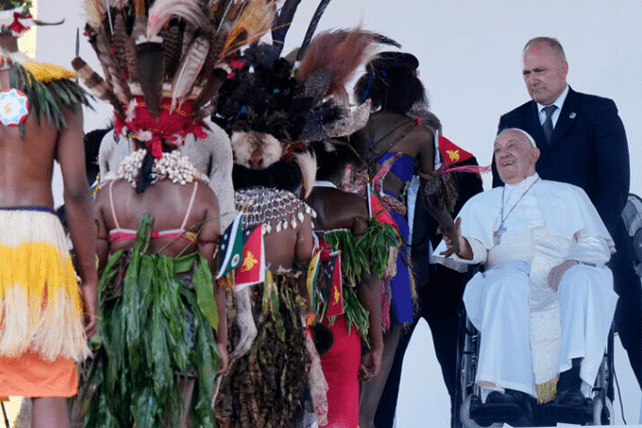“I want to see change where women are partners and cooperators, where young people are not ignored or neglected but received with open hearts and minds, where priests and religious work as partners and not as competitors, where priests and consecrated men are not regarded as ‘big men’ but as servant leaders,” said Wrakia.
Sorcery and witchcraft are still practiced in Papua New Guinea, especially in the highlands. Being accused of performing sorcery, or dark magic, often leads to violence, and data shows that many women are victims of aggression when they are accused. One of the testimonies also spoke about the challenges faced by women accused of witchcraft.
Sister Lorena Jenal spoke about her experience at the House of Hope in the Diocese of Mendi, the capital of the Southern Highlands Province, a shelter for women who have been threatened after being accused of witchcraft. She recalled a woman named Maria, who came to the House of Hope in 2017, having been tortured and severely beaten under suspicion of being a witch. Her family would not visit her or care for her, given the stigma associated with witchcraft.
“The family visited Maria eventually and then realized how she suffered. Maria went home to her family after six months. After two years the court ruled, she was innocent,” Jenal said. “Today she is working in our team standing up for human rights and the dignity and equality of women. She witnesses to the importance of love and forgiveness among all people.”
While in Vanimo, Francis seemed to allude to the issue of witchcraft in the country, telling faithful to bring a message of love that will allow “to drive out fear, superstition and magic from people’s hearts, to put an end to destructive behaviors such as violence, infidelity, exploitation, alcohol and drug abuse.”
On Monday, his last day in the country, Francis met with young Papua New Guineans to inspire a message of hope for the country. Addressing the ethnic and linguistic diversity in the country, locally referred to as “wantok,” Francis urged youth to channel that diversity in the context of harmony with others.
“Break down divisions, do not close yourselves within your own group, go out to meet others and form friendships and then dream together, walk together, build together. You, young people, who desire new friendships and new encounters, you can do it. Be wantoks of love!” he said.
This article originally appeared here.

